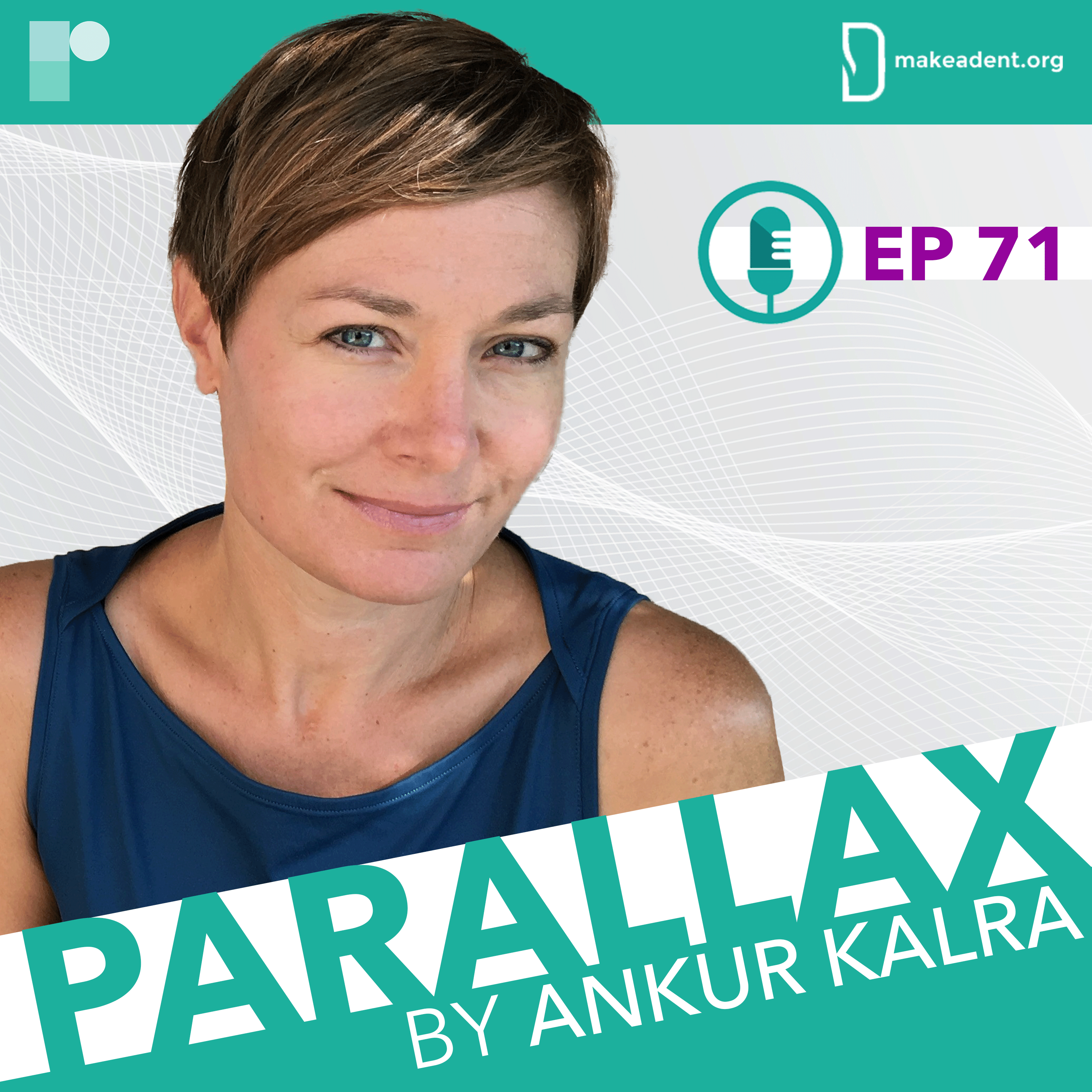
In 1999, when Shelley Wood started her career in medical journalism, there were only a few online resources. The main function of reporting on medical news was to make information accessible. Two decades later there is an abundant number of sources covering cardiology news, but TCTMD, home of Ms Wood, stands out with its “lively, thought-provoking, and rigorously objective journalism".1
This week’s guest on Parallax is Shelley Wood, Managing Editor of TCTMD, Editorial Director at CRF and 2022 recipient of the WomenHeart’s Wenger Award for Excellence in Media.
In this engaging episode, Ankur asks Shelley about her journey to medical journalism from theheart.org to TCTMD. Shelley recalls the early days of online news and shares her thoughts on what makes a content stand out in 2022. We learn more about the editorial decisions that go into leading one of the most trusted cardiology news services. Shelley, author of a bestselling novel, talks about how she balances her journalistic work with her creative writing.
How does Shelley Wood think about cardiology journalism today? What makes content good? What are Shelley’s plans as an editor and as a writer?
1. www.crf.org/crf/news-and-events…ditorial-director-2
Questions and comments can be sent to “podcast@radciffe-group.com” and may be answered by Ankur in the next episode. Guest, @ShelleyWood2 hosted by @AnkurKalraMD.
Produced by @RadcliffeCARDIO.
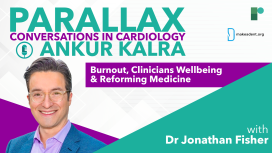



Tune in to discover the strategies that Dr. Kalra and Dr. Alasnag are currently employing and gain insights into how these data will shape their future decision-making in the catheterization laboratory. Don't miss this informative discussion at the forefront of interventional cardiology.

As we adapt to the changes brought about by the pandemic, Dr Singh outlines the necessary steps to foster a reality in which we can utilize these technologies to create more time for human connection.

Dr Owens is Medical Director of the Center for Inherited Cardiac Disease and Associate Professor of Medicine at the Hospital of the University of Pennsylvania.
This series is supported by an unrestricted educational grant from Bristol Myers Squibb. Please see www.camzyosrems.com for important safety information.
This content is intended for US-based physicians.
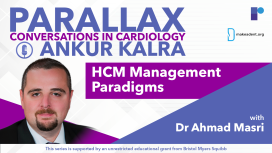
This series is supported by an unrestricted educational grant from Bristol Myers Squibb. Please see www.camzyosrems.com for important safety information.
This content is intended for US-based physicians.
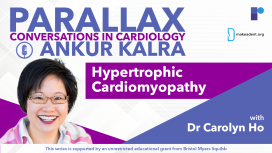
This series is supported by an unrestricted educational grant from Bristol Myers Squibb. Please see www.camzyosrems.com for important safety information.
This content is intended for US-based physicians.
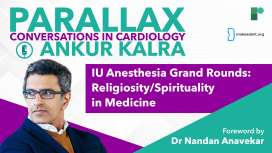
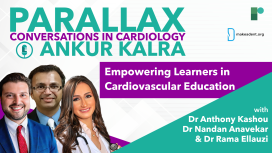

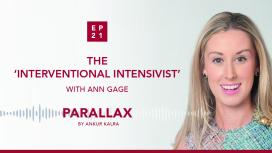
In this episode Ankur Kalra, MD meets with Dr Ann Gage, Cleveland Clinic’s first ‘interventional intensivist’. She discusses her unique skill set, what it means to be an interventionalist in the cath lab but also an expert in cardiovascular intensive care and advocates why such a unique skill set and critical care training are required in today’s modern medicine.
Listen to this engaging discussion between them on the challenges of being a woman in cardiovascular medicine today.
Submit your question to Ankur via: podcast@radciffe-group.com. Hosted by @AnkurKalraMD. Produced by @RadcliffeCARDIO.
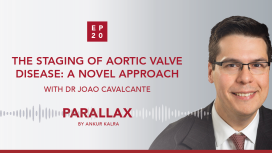
Listen to this, as well as an overview on his interesting childhood and his views on the future of cardiac imaging to treat TAVR.
Submit your question to Ankur via: podcast@radciffe-group.com. Hosted by @AnkurKalraMD. Produced by @RadcliffeCARDIO.
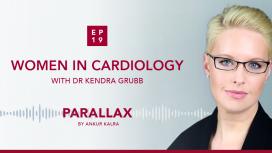
Her recent post on social media went viral. It was a photo of an all-women surgical team carrying out a complex structural heart procedure. It had over 100,000 views and was seen by people in over 75 different countries. It’s clear from this online reaction, that now is the time for women to be recognised for the work they are doing in medicine.
Listen to this engaging discussion between them on the challenges of being a woman in cardiovascular medicine today.
Submit your question to Ankur via: podcast@radciffe-group.com. Hosted by @AnkurKalraMD. Produced by @RadcliffeCARDIO.
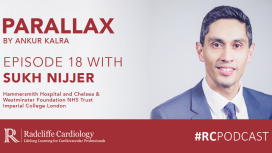
Trials discussed in detail include those presented at the ACC in New Orleans: PARTNER 3 & Evolut Low Risk on TAVR/TAVI, and SAFARI & COAPT on radial vs femoral access; presented at the ESC in Paris: THEMIS and ISAR-REACT 5 on DAPT post-PCI, DAPA-HF on SGLT2i’s for heart failure, and COMPLETE on PCI of non-culprit lesions in STEMI; presented at TCT in San Francisco: TWILIGHT on DAPT post-PCI, and EXCEL at 5 years on PCI vs CABG in left main CAD; and finally, presented at AHA in Philadelphia: ISCHEMIA on medical vs invasive approaches in ischemic events. Submit your question to Ankur via: podcast@radciffe-group.com.
Hosted by @AnkurKalraMD. Produced by @RadcliffeCARDIO.
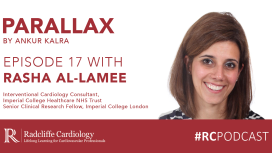
Ankur and Rasha also discuss the findings and unanswered questions of ORBITA, and how recent research in coronary revascularisation and stable ischemic heart disease has (or has not) changed their clinical practice. Finally, in anticipation of its presentation at AHA 2019, Rasha gives an overview of the International Study of Comparative Health Effectiveness with Medical and Invasive Approaches (ISCHEMIA). Submit your question to Ankur via: podcast@radciffe-group.com.
Hosted by @AnkurKalraMD. Produced by @RadcliffeCARDIO.





